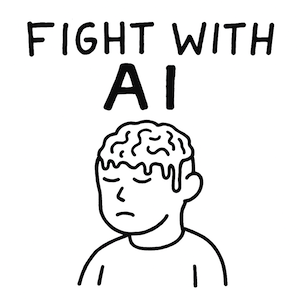Background
I use Claude and GPT for coding.
AI speeds up coding, but I often feel mentally exhausted.
By the evening, my brain feels dead.

Issue
The main issue is multitasking, which causes constant context switching. I keep one monitor and at most three tabs, yet I still drift. While AI generates code, I start other tasks. When I return, I forget the prompt. I also distrust the output for complex logic; it feels like working with a junior engineer who moves fast but needs close review, and Claude sometimes ships code that is more complex than necessary.
Solution
I need to rethink what I ask AI to do and how I arrange tasks. Preparation is the antidote: reduce multitasking and context switching by leaning on pre-AI good practices. I now design first—even for small tasks—often in GitHub Issues or Notion. Then I write the first prototype based on that design, asking AI targeted questions instead of handing over the whole task. For final code, AI drafts, I refactor, and I often delegate unit tests to it. Because the work is already sliced, any remaining multitasking hurts less.
How it works
The speed of coding doesn’t improve much because I spend more time on design.
However, the quality of the output improves because I think about design first.
I believe that experienced engineers can collaborate well with AI and use it to enhance their work.
Conclusion
If you fight with AI, you’ll lose. Your brain will be exhausted.
You need good design and clear task breakdowns—the same best practices that were important even before the AI era.
While writing this, I realized it’s getting closer to a waterfall-like process.